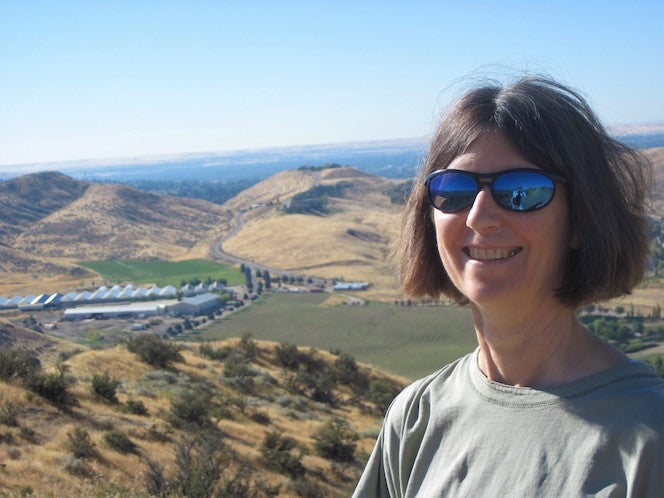
Beth Brin, an associate professor and librarian at Albertsons Library, retired in July after nearly 25 years at Boise State University.
Brin began work at Albertsons Library in November 1995 as a reference and bibliographic instruction librarian. Since then she has helped thousands of students through one-on-one interactions and class instruction in courses across the curriculum. She supported general education with instruction in first-year writing courses, University Foundations courses and the current Library Digital Badges micro course. She also taught information literacy skills in upper division and graduate courses.
Brin’s work engaged the faculty and staff of the College of Engineering as well. As library liaison to the college’s departments, she helped shape the library collection to support the growing research and academic activities of COEN and collaborated with faculty to teach students — from first year to graduate — how best to use their discipline’s technical literature.
Brin was instrumental in the development of the library’s current tenure and promotion process. She chaired the tenure and promotion committee for many years and led the library faculty through major changes when the university revised its policy in 2015. Her thoughtful, measured and open leadership allowed all voices to be heard during the process while ensuring that the revision was completed in a timely manner, said her colleagues.
“I have enjoyed working with the vibrant community of students, faculty and staff at Boise State University. People care about learning and discovery, and about sharing that passion with others,” said Brin. “I’ve been inspired by so many stories and appreciated the opportunity to contribute to some of them. Working with the College of Engineering faculty has been particularly rewarding.”
According to colleague Cheri Folkner, associate professor and head of cataloging at Albertsons, “Beth’s retirement will be a great loss for the library and the university. Her breadth and depth of knowledge of librarianship is immense, and she is always available to support her colleagues. Not only will we lose Beth’s expertise and institutional knowledge, we will miss her example of always striving for the ‘better angels of our nature.’”